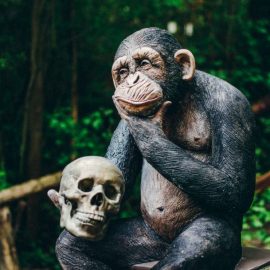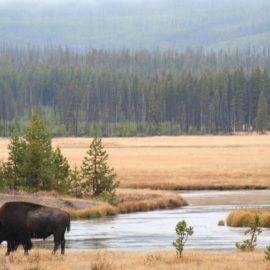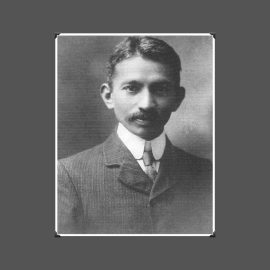

This article is an excerpt from the Shortform book guide to "Humankind" by Rutger Bregman. Shortform has the world's best summaries and analyses of books you should be reading.
Like this article? Sign up for a free trial here .
Is violence a part of human nature? Or was our good nature corrupted by civilization?
In his book Humankind, Bregman argues that human violence is not a natural impulse. He maintains that humans’ transition from foraging to civilization created societies that were more violent, less equitable, and less healthy. However, human nature by itself is fundamentally good.
Let’s take a closer look at the negative effects that began to arise when our ancestors made this transition.
Civilization Gave Rise to Violence
According to Bregman, human violence is a by-product of the emergence of civilization. In his book Humankind, he argues that peaceful coexistence between human tribes began to change about 15,000 years ago, when the last Ice Age ended. Tempted by the abundance of grain and other foods, humans began to settle down in villages, which eventually became cities and civilizations.
(Shortform note: Many researchers agree with Bregman that our ancestors settled down in villages because of an abundance of food. However, some historians have offered alternative explanations. For example, an archaeologist from Stanford University theorizes that foragers began to settle down not because of food, but because they valued spiritual and artistic communal practices. He claims that settlements brought people together, allowing them to create art and engage in spiritual rituals.)
Violence increased: According to Bregman, the invention of settlements and farming led to the invention of war. Before civilization, one of the reasons why foragers avoided war was that they had no land or possessions to fight over. However, as people settled down in one place, they began to accumulate personal property, which they passed down to their children. This led people to covet others’ property and want to protect their own, which in turn led cities to wage war over land and possessions.
(Shortform note: Because we don’t have a written record of any prehistoric wars, it’s hard to say whether Bregman is correct that the invention of private property led humans to wage war. However, more recent historical evidence supports this claim. The earliest recorded war occurred in 2700 BCE, between the Sumerians and the Elamites in what is now Iran. Records show that the Sumerians plundered the Elamites’ city and stole their weapons. This suggests that property was at least one factor in early warfare.)
Inequality increased: Bregman suggests that the transition to civilization also led to less equitable communities. He maintains that early foraging societies had no hierarchies. While a member of the group might lead in a time of crisis, he or she would relinquish power soon after or risk being ostracized.
(Shortform note: Most anthropologists and historians agree with Bregman’s claim that there were no hierarchies in early foraging groups. But why was this the case? One theory suggests that as we evolved, humans became so good at recognizing negative behaviors such as cheating and deception that it no longer made sense for one person to try to gain power. In other words, anyone who wanted power wouldn’t be able to outsmart the others in the group.)
However, Bregman explains that as humans started to settle down in one place, hierarchies began to form. Leaders came to power through prowess in war and were harder to topple because they had armies, prisons, and punishments to back them up. These new rulers began to demand taxes and labor to build infrastructure, leading to oppression and slavery.
(Shortform note: While Bregman is correct that leaders generally seized and kept power through force, implying that this societal shift was negative, other authors note that the hierarchies in early civilizations had benefits as well. For example, having a farming class allowed some citizens to not have to spend all of their time producing food. This allowed the middle and ruling classes to develop new advancements in art and technology, including more sophisticated pottery and sculptures, irrigation systems, and metal tools. Bregman would likely recognize that these benefits existed, but he might suggest that they applied to only a small percentage of the population.)
Health worsened: Bregman also argues that the transition to farming led to a decline in health. As foragers, we had a balanced diet, but in farming communities, we ate a homogenous and relatively innutritious diet of grains. Living together in close quarters with each other and with animals also allowed bacteria to thrive, exposing us to new diseases and increasing the risk of infection.
| Early Foragers Had Healthier Diets Than Farmers Archaeological evidence supports Bregman’s claim that farming led to a decline in health. Researchers have found that the skeletal remains of early farmers had more dental cavities and weaker bones than early foragers, and were more susceptible to disease. Moreover, Bregman’s claim that foragers were healthier is part of a growing emphasis in our society on natural food. As more studies have emerged on farming’s negative impact on our health, the paleo diet has grown in popularity. In this diet, people only eat foods that our early foraging ancestors could have accessed. (Paleo is short for the Paleolithic age, which lasted from 2.5 million to 10,000 years ago.) These foods include fish, nuts, and fruits. |

———End of Preview———
Like what you just read? Read the rest of the world's best book summary and analysis of Rutger Bregman's "Humankind" at Shortform .
Here's what you'll find in our full Humankind summary :
- Why humans are fundamentally good, not evil
- How the Stanford Prison Experiment was misleading
- How recent studies have debunked "Killer Ape Theory"






